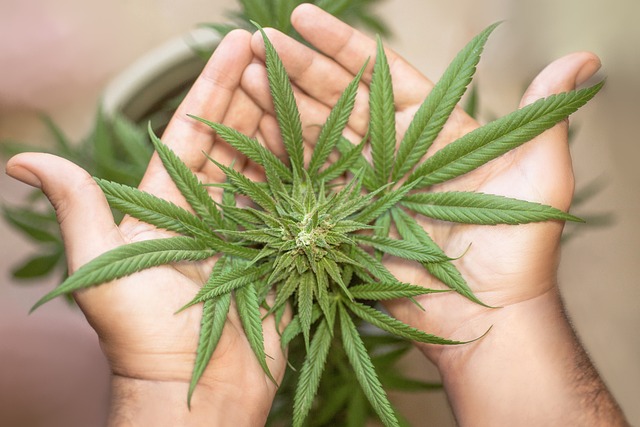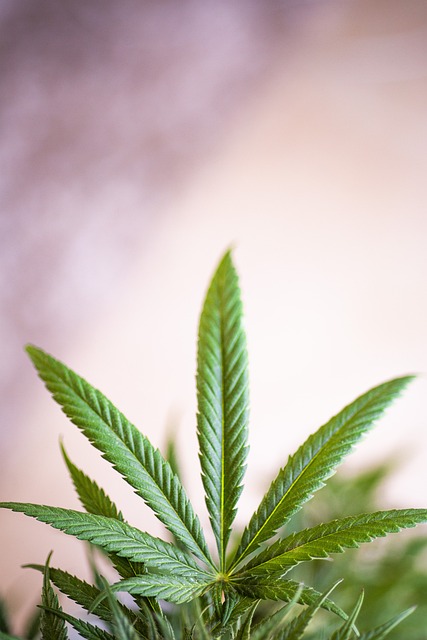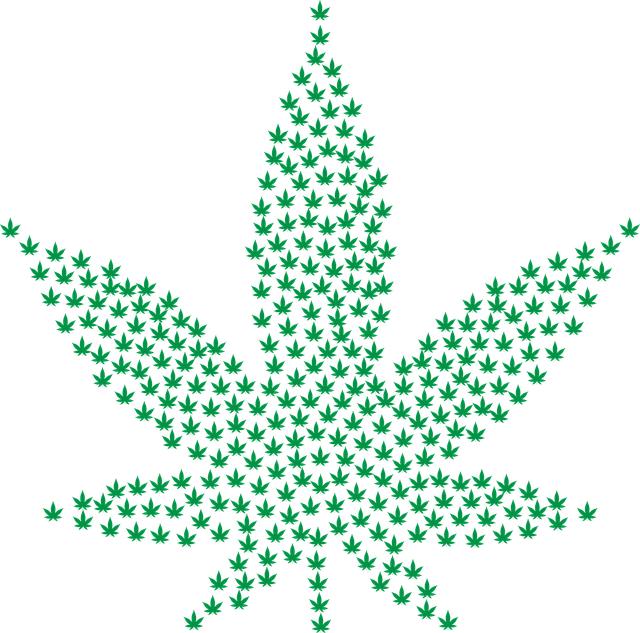Delta 9 THC and CBD bud gummies offer distinct experiences due to their unique properties within the cannabis plant. Delta 9 THC gummies are psychoactive, providing sensations of euphoria, heightened awareness, and relaxation, potentially helpful for recreational use or conditions like chronic pain and nausea. CBD bud gummies, on the other hand, offer non-psychoactive benefits with therapeutic effects that may alleviate anxiety, reduce inflammation, and ease pain without mind-altering side effects. When choosing between Delta 9 THC and CBD gummies, consumers should consider their wellness goals or recreational intentions, adhere to local legal guidelines, and be aware of the differences in their effects. Delta 9 THC gummies have a delayed onset compared to inhalation methods but offer a long-lasting experience, making them a discreet choice for controlled dosage consumption. CBD gummies are suitable for those seeking therapeutic benefits without psychoactive effects, providing a consistent dosage ideal for daytime use or situations requiring clear-headedness. The decision between Delta 9 bud vs CBD bud should be informed by individual needs and the legal status of each product in your region. Understanding the manufacturing process and ensuring product purity is also crucial when selecting either type of gummy. Both types of gummies offer convenient, discreet consumption options within the cannabis edibles landscape.
Explore the vibrant world of Delta 9 and CBD gummies with an in-depth review that delves into their effects, benefits, and nuanced differences. This comprehensive guide offers a detailed examination of these cannabinoid-infused treats, from their legal status to the intricate chemistry that defines them. Discover how Delta 9 THC gummies can offer psychoactive experiences, while CBD gummies provide wellness support without intoxication. Compare the potency and effects of Delta 9 bud versus CBD bud, and understand the entourage effect when both cannabinoids are present. Learn about dosing, storage, and the vast array of products available in the market, ensuring you make an informed choice for your needs. Join us on this edible journey through the cannabis landscape, where taste, effects, and potential medical applications intertwine to enhance your experience.
- Understanding Delta 9 THC and CBD Gummies
- Delta 9 THC Gummies: Effects, Dosage, and Legality
- CBD Gummies: Wellness Benefits and Usage Guidelines
- Delta 9 vs CBD Gummies: A Comparative Analysis
- The Chemistry Behind Delta 9 and CBD Gummies
Understanding Delta 9 THC and CBD Gummies

Delta 9 tetrahydrocannabinol (THC) and cannabidiol (CBD) gummies are two distinct edible options derived from the cannabis plant, each offering unique effects due to their respective compounds. Delta 9 THC is the primary psychoactive component of cannabis, renowned for its mind-altering effects. When consumers opt for Delta 9 bud gummies, they experience a euphoric high, increased sensory perception, and relaxation. These effects are often sought after for recreational use or to alleviate certain medical conditions, such as chronic pain or nausea. On the other hand, CBD bud gummies contain cannabidiol, a non-psychoactive cannabinoid that interacts with the body’s endocannabinoid system. CBD is celebrated for its potential therapeutic benefits, including anxiety relief, anti-inflammatory properties, and pain management without the ‘high’ associated with THC. Users typically prefer CBD gummies for their calming effects and wellness support. Both Delta 9 THC and CBD gummies are available in various potencies and formulations, catering to a wide range of consumer needs and preferences. When choosing between Delta 9 bud vs CBD bud, it’s important to consider the desired effect and legal regulations concerning cannabis products in your area. Understanding the nuances between these two types of gummies can guide consumers towards a more informed decision that aligns with their health goals or recreational preferences.
Delta 9 THC Gummies: Effects, Dosage, and Legality

Delta 9 tetrahydrocannabinol (THC) gummies offer a discreet and flavorful way to experience the psychoactive effects of cannabis. Unlike their counterpart, delta 9 CBD buds, which do not produce a high due to their non-psychoactive nature, delta 9 THC gummies can significantly alter perception, mood, and consciousness. The onset of effects from delta 9 THC gummies is typically slower than inhaled cannabis, with the peak experienced about 1 to 2 hours after ingestion. Users may feel relaxation, euphoria, or increased appetite, among other potential effects. It’s crucial to start with a low dose to gauge individual tolerance, as the effects of edibles can be long-lasting and more potent than other consumption methods due to the way the body processes and metabolizes THC when ingested.
Dosage for delta 9 THC gummies should be approached with caution and personalization. Factors such as body weight, tolerance, and the desired effect play a significant role in determining the right dosage. New users are advised to begin with a single gummy containing a low milligram amount of THC, often ranging from 5 to 10 mg. Experienced users may consume higher doses, but it’s important to do so responsibly and not exceed state-specific legal limits or personal comfort levels. As for legality, the status of delta 9 THC gummies varies by state and country, with some regions fully legalizing cannabis products for medical or recreational use, while others maintain strict regulations or prohibitions. Users must ensure they are in compliance with local laws before purchasing or consuming these products. It’s also essential to store delta 9 THC gummies securely to prevent accidental ingestion by children or pets, given their appealing form and potential for strong effects.
CBD Gummies: Wellness Benefits and Usage Guidelines

Delta 9 gummies, infused with Delta 9 THC, offer a range of wellness benefits that are distinct from those associated with CBD gummies. While both types of gummies can help manage stress and promote relaxation, Delta 9 gummies also provide psychoactive effects due to the presence of Delta 9 tetrahydrocannabinol. This can lead to euphoria, pain relief, and an enhanced sense of well-being. On the other hand, CBD gummies, which contain cannabidiol, are non-psychoactive and are often sought after for their therapeutic properties, including anti-inflammatory effects, anxiety relief, and potential benefits for those with chronic pain or epilepsy.
When considering the usage of Delta 9 or CBD gummies, it’s crucial to understand the legal status in your area as well as your individual tolerance and needs. Delta 9 products are subject to more stringent regulations due to their psychoactive nature. For those new to cannabis-derived products, starting with a low dose of CBD gummies can be beneficial to gauge one’s response before experimenting with higher concentrations or the addition of Delta 9. It’s also important to consider the manufacturing process and the purity of the product when selecting either type of gummy. Users should follow the dosage guidelines provided on the packaging or by a healthcare professional, as both Delta 9 and CBD can interact with certain medications and may affect individuals differently based on various factors like body chemistry and metabolism.
Delta 9 vs CBD Gummies: A Comparative Analysis

Delta-9 tetrahydrocannabinol (Delta 9 THC) and cannabidiol (CBD) are two prominent compounds found in cannabis plants, each offering distinct effects and experiences. When it comes to gummies, a popular edible form, the difference between Delta 9 THC and CBD gummies is evident in their psychoactive properties and the way they interact with the body’s endocannabinoid system.
Delta 9 THC gummies contain the primary psychoactive component of cannabis, which means they can alter perception, mood, and mental function. The effects of Delta 9 THC are often felt within 30 minutes to 2 hours after ingestion and can last for several hours. These gummies are ideal for those seeking relief from conditions like pain, nausea, or appetite loss, where the psychoactive effects are a beneficial byproduct rather than the primary aim. On the other hand, CBD gummies derived from hemp contain little to no THC and are non-psychoactive. They are touted for their potential wellness benefits, which include stress and anxiety relief, without the ‘high’ associated with Delta 9 products. Users often prefer CBD gummies for daytime use or situations where cognitive function needs to remain clear.
When comparing Delta 9 bud vs CBD bud, it’s essential to consider not only their legal status but also their effects on the user. Delta 9 products are subject to stricter regulations due to their psychoactive nature and may only be legal in certain regions or under specific laws. Conversely, CBD products have become more accessible across various jurisdictions, reflecting the shifting legal landscapes surrounding cannabis-derived compounds. In terms of consumer preference, both types of gummies cater to different needs: Delta 9 for those seeking the intoxicating effects, and CBD for those looking for therapeutic benefits without impairment. Understanding the nuances between these two compounds is crucial for consumers making informed decisions about which product best suits their needs.
The Chemistry Behind Delta 9 and CBD Gummies

Delta 9 tetrahydrocannabinol (Delta 9 THC) and cannabidiol (CBD) are two prominent compounds found in the Cannabis sativa plant, commonly known as cannabis or hemp. Both substances interact with the body’s endocannabinoid system, but they exert different effects due to their distinct chemical structures and how they bind to cannabinoid receptors within this system. Delta 9 THC is the primary psychoactive component of cannabis, responsible for the ‘high’ associated with marijuana use. It comprises a class of compounds called cannabinoids, which can modulate various physiological processes, including pain sensation, mood, and appetite. On the other hand, CBD is non-psychoactive and has gained popularity for its therapeutic properties, such as reducing anxiety and inflammation, without the mind-altering effects of Delta 9 THC.
When it comes to gummies infused with these cannabinoids, the chemistry behind their creation involves precise extraction and formulation processes to ensure potency and safety. The Delta 9 bud vs CBD bud distinction is critical in this context, as the choice between the two will determine the product’s intended effect. During manufacturing, Delta 9 THC is extracted from hemp and carefully combined with other ingredients to create gummies that deliver a controlled dose of this cannabinoid. Similarly, CBD gummies are produced by extracting and concentrating CBD from hemp plants and infusing it into gummy form for easy consumption. The effects of these gummies can be long-lasting due to their edible format, which is digested slowly over time, providing sustained release of the active cannabinoids into the bloodstream. Users often prefer gummies for their convenience and discretion, as well as for the consistent dosing they offer compared to other consumption methods like smoking or vaping.
Delta 9 THC and CBD gummies offer distinct experiences for users seeking the benefits of cannabinoids. This in-depth review has explored the effects, dosage considerations, and legal status of Delta 9 THC gummies, the wellness advantages of CBD gummies, and a comparative analysis of both. Understanding the chemistry behind these products illuminates their potency and differences. Ultimately, whether one opts for the psychoactive effects of Delta 9 buds or the therapeutic properties of CBD buds, discerning consumers can make informed choices based on personal wellness goals and legal availability. When considering either option, it’s always prudent to adhere to recommended guidelines and local regulations.
